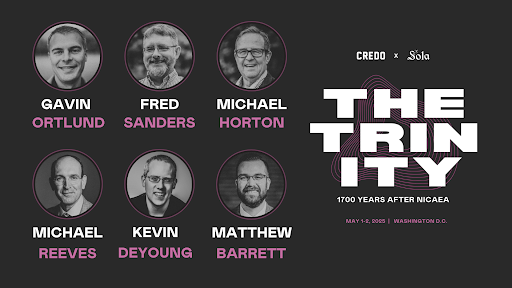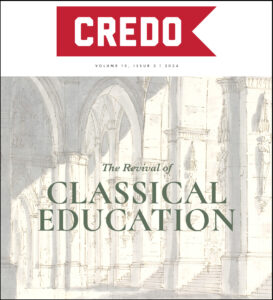In May of 1564, the great Reformer and theologian John Calvin drew his last breath. Perhaps it is historically simplistic to call the Reformer’s passing the end of an era. Nevertheless, his death symbolized the progress of the fledgling Protestant movement into a stage of critical maturation. First-generation Reformers Martin Luther and Huldrych Zwingli had already passed, and Cranmer in England was martyred nearly a decade earlier. Yet, the movements they helped to start had not died with them. Whatever one thought of it, Protestantism was here to stay. Now successfully established, the Reformed entered an era of consolidation and institutionalization, apparent especially in education and the university. The linguistic and historical tools of Renaissance humanism entered into their curriculums, but something was still missing. In need of robust pedagogical tools for the training of theologians and pastors, the Reformed plundered the methods of the Medieval Scholastics. Armed with the Western tradition in one hand and Hebrew and Greek grammars in the other, the Reformed Scholastics appeared in the schools of Protestant Europe. The perspectives outlined in this Credo issue will not find immediate predecessors among the Reformed schoolmen. Even so, a strong classical impulse can be discerned in their efforts to solidify a young Protestantism in early modern Europe, and they have critical lessons to teach conservative American Protestants increasingly fascinated with classical paradigms for education at all levels.
Reformed Scholastics and the Classics
The reader of the Reformed Scholastics will note the breadth of scholarship and education that pours forth from every page of its erudite representatives. This is especially evident in their chapters on the existence of God. Employing pagan writers as sure testimony of the universality of belief in God, the scholastics often laid out impressive litanies of citations from the classical poets and philosophers. Petrus van Mastricht, for example, quotes Nero, Caligula, Cicero, Epicurus, and Juvenal in his pages on the existence of God.[1] While such citations are often concentrated in chapters on God’s existence, even a cursory reading will find them organically woven throughout many of the Reformed dogmatic systems of the seventeenth and eighteenth centuries. The scholastics used the thoughts and writings of the ancients not only as foils, but also for constructive input into their own systems under the guidance of divine revelation. In one striking example, Francis Turretin employed Aristotelian logic to precisely define how to construct a theological argument that maintains its faithfulness to Scripture. In other words, Turretin used Aristotle to narrowly define the confessional principle of drawing “good and necessary consequences” from Scripture, not to allow logic and reason to reign unchecked in dogmatics, but rather to uphold the Protestant principle of sola scriptura and make theology more rigorously biblical.[2]
This level of mastery over the classical sources, which allowed the scholastics to organically integrate the philosophers’ insights into Protestant theologizing in novel ways, was an intentional product of their courses of study. An essay by Richard Muller on Reformed Scholastic education demonstrates just how universal the study of the classics was. Manuals on education published by Heinrich Bullinger in Switzerland, Andreas Hyperius in Germany, and Gisbertus Voetius in the Netherlands, though they differed in specifics, all recommended not only the study of the ancient philosophers and poets, but also the theologians of the early and medieval church and a wide array of non-theological topics.[3] The magisterial tomes which resulted from such an intensive curriculum demanded their rightful place in the Great Tradition of Christian Orthodoxy. Still also they reckoned with a broader classical tradition stretching back to the foundations of the West. Impressively, even the self-educated Baptist John Gill, a student of the Reformed scholastics, displayed a similar acquaintance with classical literature. My readers, whether students or faculty, may not find themselves in an environment with an institutionalized classical education model. But the reading of the classics is a priority that can be integrated in almost any context – even, as John Gill reminds us, self-education. One does not need to become a classicist to reap some of the benefits that the Reformed found in the ancients. But the occasional foray into Homer or Plato, Virgil or Cicero, will have unmistakable benefits towards fostering clarity of thought and a sense of place in the development of Western thought. The scholastics used the thoughts and writings of the ancients not only as foils, but also for constructive input into their own systems under the guidance of divine revelation. Share on X
The Disputatio
Several features of Medieval Scholasticism were adopted by the Reformed Scholastics, often because of their usefulness as pedagogical tools. One of these features, and perhaps the most obvious, was the scholastic method of questions and answers along with objections and responses, permeated by carefully defined distinctions. Another was the disputatio, or scholastic disputation. The most helpful analogy for defining a disputation is a debate, but this term brings with it liabilities. For many of us, debates occupy a space in our mind associated with personal attacks, raised voices, and constant interruptions. In its ideal form, however, the scholastic disputation was nothing so chaotic. The disputation was presided over and carefully moderated by a member of the theological faculty of a university, who would choose a topic and circulate written theses outlining a position. For a familiar example, consider the 95 Theses of Martin Luther, which were presented for a proposed disputation. Once the students were able to give the theses a fair amount of study, the disputation would take place. One student would stand in defense of the theses as the “respondent,” while his peers would raise objections and questions as “opponents.”[4] Afterwards, the presiding faculty member would crystalize the results of the disputation, synthesized with his own thoughts, into a longer document addressing the theses. These finalized documents formed the basis of some of the most influential theological systems of the era of Reformed Orthodoxy. The Synopsis of a Purer Theology, otherwise known simply as the Leiden Synopsis, began as a series of oral disputations presided over by the theological faculty at Leiden in the seventeenth century.Testing one’s ideas against adversaries was an essential component of intellectual development. Share on X
At the root of this practice was the conviction that testing one’s ideas against adversaries was an essential component of intellectual development. As much joy as it would bring me to see experimentation with the old disputations in contemporary theological education, their revival is not strictly necessary to implement this key insight. Its pedigree stretches back far beyond the medieval disputation. We might consider likewise the lively deliberations of Socrates which inspired Plato’s dialogues, or even the close band of intimate disciples who learned at Jesus’ feet. The insight is operative whenever a class discussion takes place, or better yet, whenever a class is taught in seminar style. Still, the rigorous preparation and moderation of the scholastic disputation has in it something to be commended, and is an element sometimes (not always) missing from contemporary forms of interactive learning. The old Reformed and the systems of theology they left behind stand as a powerful testimony to the value of disputation and debate in education.
Learning in Faith
The Reformed Scholastics challenge us to begin every day of study with fervent prayer, and devote even our most lofty academic thoughts to the glory of the Triune God. Share on XTo conclude, we might note another common feature of Reformed treatises on education as noted by Richard Muller: the importance of faith. For the Reformed, intellectual development was integrative. One could not grow in knowledge of God and his Word without faith and piety. They prescribed a course of study permeated by prayer and devotion to God’s law. We read near the beginning of Proverbs, “The fear of the LORD is the beginning of knowledge” (Prov. 1:7, ESV). And Jesus’ prescription that we love God with all our heart, soul, and mind (Matt.22:37) suggests a radically integrated “knowing.” Far be it from our Lord to command of us a cold and detached theoretical knowledge of holy things. Rather, we are to love God with all our minds, alongside our whole heart and soul. So the Reformed scholastics often thoroughly integrated doctrine and practice in their writings. Muller points to such integration, alongside exegetical and polemical elements, in Mastricht and Wilhelmus à Brakel.[5] We might also include John Gill and William Ames, both of whom began their theological systems with dogmatic concerns, and concluded with extensive chapters on practical divinity. Furthermore, any discussion of the integration of doctrine and practice in Reformed thought cannot be put to rest without mention of John Owen. As fine a theologian as any among the Reformed, his thoughts on the Christian life are among the best on offer in the whole of the Christian tradition. Many of us recognize the importance of faith and piety to Christian intellectual formation. Yet how often do these become bifurcated from our studies? The Reformed Scholastics challenge us to begin every day of study with fervent prayer, and devote even our most lofty academic thoughts to the glory of the Triune God.
Notes:
[1] Petrus van Mastricht, Theoretical-Practical Divinity, vol. 2, Faith in the Triune God, trans. Todd M. Rester, ed. Joel R. Beeke and Michael T. Spangler (Grand Rapids, MI: Reformation Heritage Books, 2019), 51-52.
[2] WCF 1.6; Francis Turretin, Institutes of Elenctic Theology, vol. 1, trans. George Musgrave Giger, ed. James T. Dennison (Phillipsburg, NJ: P&R Publishing, 1992), 40.
[3] Richardd Muller, “Calling, Character, Piety, and Learning: Paradigms for Theological Education in the Era of Protestant Orthodoxy,” in After Calvin: Studies in the Development of a Theological Tradition (New York: Oxford University Press, 2003).
[4] For this description, I am indebted to the Introduction of Davenant Press’ recently published edition of the Leiden Synopsis. William Den Boer and Riemer A. Faber, eds., Synopsis of a Purer Theology, vol. 1 (Landrum, SC: Davenant Press, 2023), viii.
[5] Muller, 120.
Photo Credit: Jeremy de Blok



